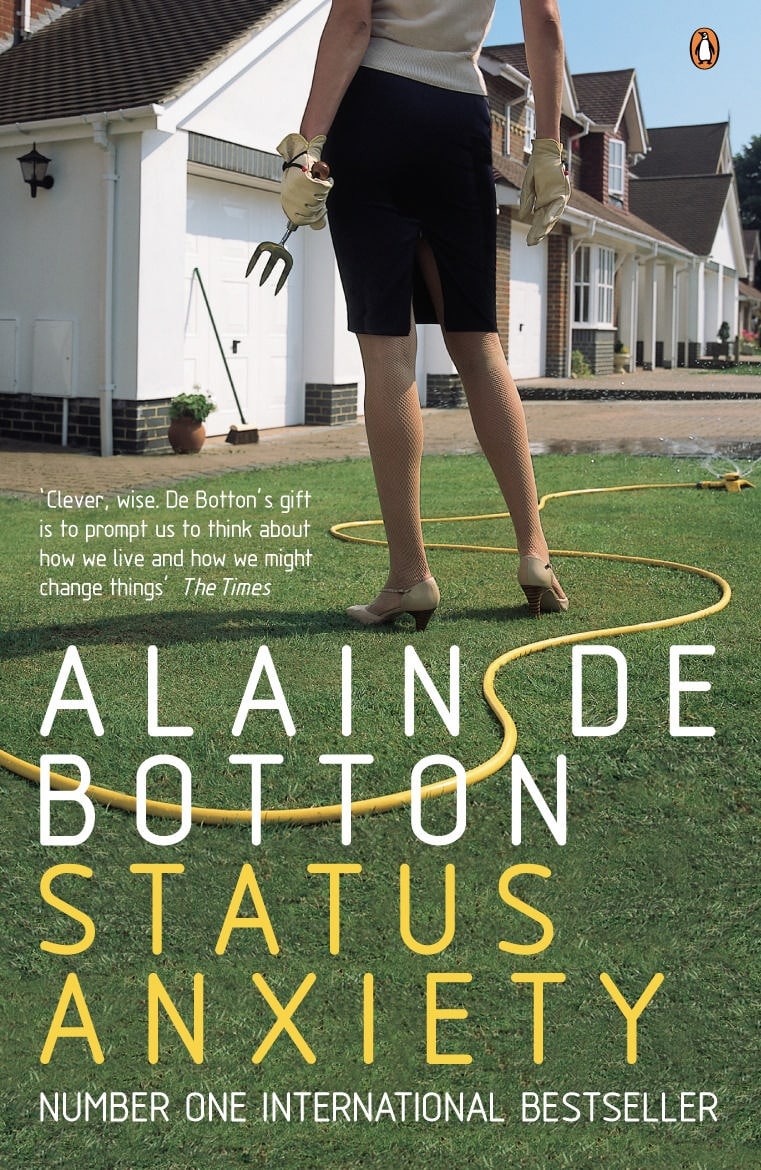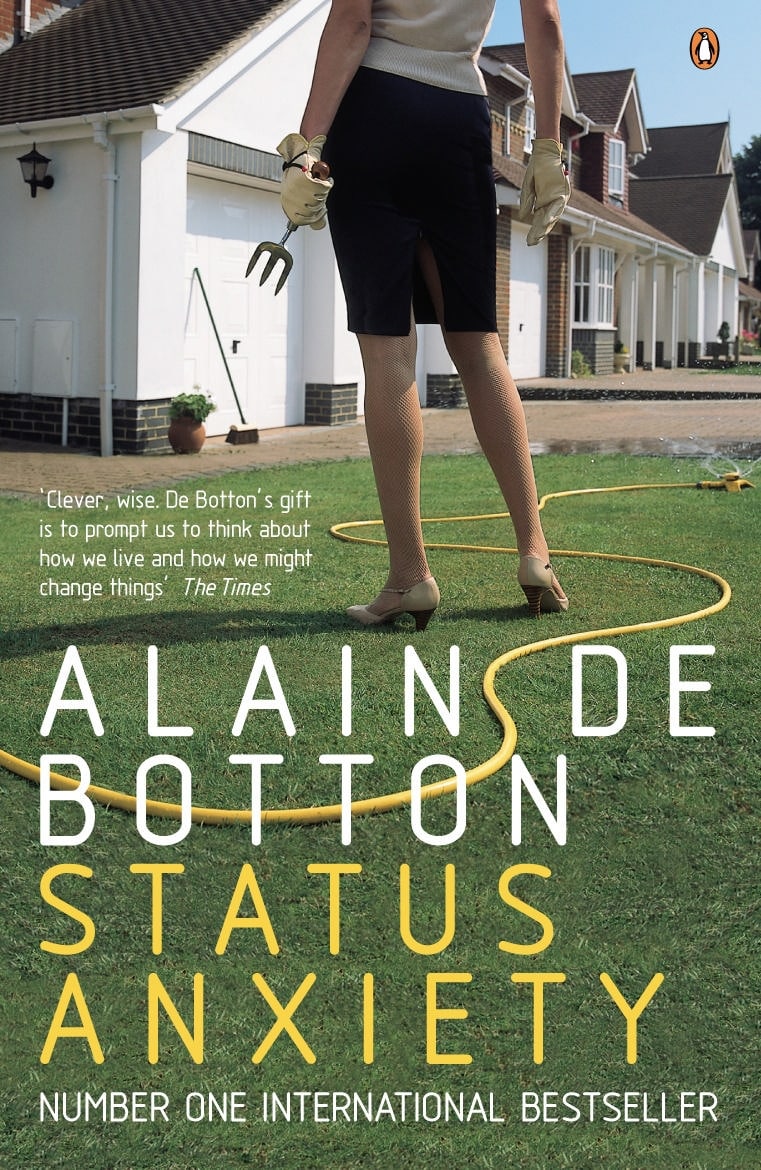

The idea that our potential for greatness is infinite can be paralyzing. It’s like looking at a 10-page diner menu when you’re starving. The options are paralyzing. It’s a nice feeling that our possibilities are limitless, but it overwhelms us. In life, having an endless set of dreams to pursue makes us feel like productivity is the only activity. Stagnancy feels like failure in our social context. We seem to all feel like failures.
If you’ve ever experienced a vain jolt of envy when scrolling past someone’s success on Instagram, or a paralyzing shot of depression when you compare yourself to your peers, you’ve experienced what is called “status anxiety,” or a desperate feeling of inadequacy in our system that ascertains value on the basis of class, professional/academic merit, and influence. In Status Anxiety, Alain de Botton says:
“To feel that we are taken no notice of necessarily disappoints the most ardent desires of human nature.”
Our desire to rise in our social hierarchy is entirely rooted in the human desire for attention. It’s impossible to exist in a vacuum and tell ourselves we are significant and valuable. We need others to confirm our ideas of ourselves into solidity. We exist in reference to others.
According to this book, part of the reason why status anxiety is so prevalent in the Western sphere is social equity. When the idea of monarchical birthright and rigid class structure died in the U.S. and declined in Europe, it gave everyone the “equal opportunity to rise,” which then plunged all humans into the unknown. It allowed envy to flourish... if I can easily be as wealthy as the man in the estate up the hill, why aren't I? With the idea of a set destiny and a fixed social class now diminished, people were simultaneously gifted and burdened with agency. If you’re a member of the poorer populations and can’t pull yourself out of that social class, it’s now a personal failure rather than a systemic inconsistency. We know now that equal opportunity is a myth for the most part, and systemic failings are at the root of raging inequality. But that’s another discussion.
According to Botton, the possible solutions to the quiet despair of status anxiety are as follows:
Studying Philosophy: If we can logically understand that each man’s opinion is his own, and the inner worlds of others have no bearing on our existence, we can develop a sort of invulnerability to the value imposed onto us by the external world.
Consuming Art: Art displays the most painful and existential conundrums of the human condition. It confirms that failure is normal, negative traits are commonplace, and that humanity is chaos.
Comedy: Comedy satirizes the unrealistic expectations we place on ourselves and the ways in which we falsely idealize those in power, it mocks us, and allows us to take ourselves less seriously, and engage in buffoonery.
There are other causes and solutions that Botton identifies in this book, in much deeper detail, and with specific examples. He calls upon his vast reservoir of knowledge regarding Western thought and history. His academic research is vast and profound, and sometimes overwhelming. But he presents his facts with lyrical eloquence and precision. Sometimes, his sentences are a bit stuffy and riddled with fluff that softens the blow of his arguments. There's a lot of unnecessary redundancy that reeks of desperation. It sometimes feels like he's writing an essay for a boring class and is trying to reach the word-count minimum. But the underlying messages are still distinguishable.
This book is organized and easy to follow, and provides deep insights into the frightful conditions we subject ourselves to. Overall, it’s a profound, philosophical, essay-formatted book that helps its readers accept and nurture the aspects of their humanity that they are conditioned to regret. Eminent philosophers and public intellectuals are referenced to provide us with proper consolations for our anxieties, giving truth and credibility to each adage. It points the finger at our misguided collective thought and helps remove the burden of status anxiety — a silent killer if not treated.
Brigade Book Society Rating: 7.5/10




0 comments